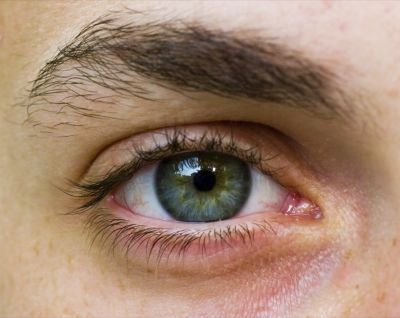Explained: Why light worsens migraines

Your support helps us to tell the story
From reproductive rights to climate change to Big Tech, The Independent is on the ground when the story is developing. Whether it's investigating the financials of Elon Musk's pro-Trump PAC or producing our latest documentary, 'The A Word', which shines a light on the American women fighting for reproductive rights, we know how important it is to parse out the facts from the messaging.
At such a critical moment in US history, we need reporters on the ground. Your donation allows us to keep sending journalists to speak to both sides of the story.
The Independent is trusted by Americans across the entire political spectrum. And unlike many other quality news outlets, we choose not to lock Americans out of our reporting and analysis with paywalls. We believe quality journalism should be available to everyone, paid for by those who can afford it.
Your support makes all the difference.A discovery among blind people has helped scientists resolve a mystery why light can make a migraine go from headache to head-splitter, according to a study published on Sunday.
The problem appears to lie with a newly-discovered bunch of cells in the retina, its authors say.
Researchers from Beth Israel Deaconess Center, an affiliate of Harvard Medical School, made the find after pondering why some blind people who suffer from migraines also experience photophobia - an extreme sensitivity to light that horribly worsens these headaches.
In a paper published online in the journal Nature Neuroscience, the team reported how they probed two groups of migraine-suffering blind individuals.
One group, of six people, was totally blind and immune to the normal sleep-wakefulness cycle caused by daylight and night.
The other, numbering 14, was "legally blind" because of degenerative diseases of the eyes. They could detect the presence of light and followed the sleep-wakefulness cycle although they could not perceive images.
"While the patients in the first group did not experience any worsening of their headaches from light exposure, the patients in the second group clearly described intensified pain when they were exposed to light, in particular blue or grey," said senior author Rami Burstein.
"This suggested to us that the mechanism of photophobia must involve the optic nerve, because in totally blind individuals, the optic nerve does not carry light signals to the brain."
The team theorised that the culprit had to be recently-discovered retinal cells which have melanopsin photoreceptors - light-sensitive biological triggers for sleep and wakefulness.
"These are the only functioning light receptors left among patients who are legally blind," Burstein explained.
The next step was to test the ideas on lab rats. Using dyes injected into the rodents' eyes, the scientists were able to trace the pathway from the melanopsin retinal cells through the optic nerve and to the brain, where they found a group of neurons which became activated during migraines.
Tiny electrodes inserted into the rats' brains determined that, within seconds, light unleashed a surge of electrical activity in these cells - and the cells remained switched on even after the light was removed.
"This helps explain why patients say that their headache intensifies within seconds after exposure to light and improves 20 to 30 minutes after being in the dark," Burstein added in a press release.
The work could be a boon for migraine sufferers, the authors hope. It opens up exploratory options for drugs that block the pathway, enabling a migraine patient to endure light without added pain.
Migraines are a widely researched disorder, although the causes remain unclear.
They are believed to develop when protective membranes surrounding the brain become irritated. This stimulates pain receptors and, in turn, causes sensory neurons to become activated for long periods.
ri/rl
Join our commenting forum
Join thought-provoking conversations, follow other Independent readers and see their replies
Comments